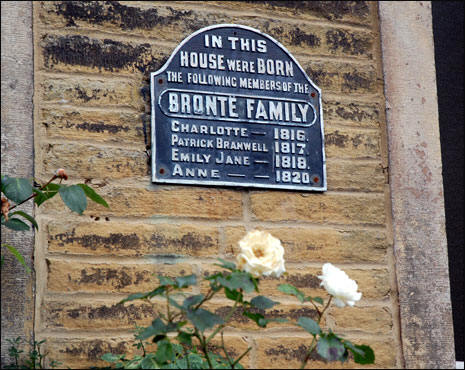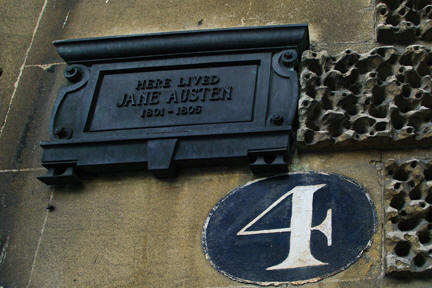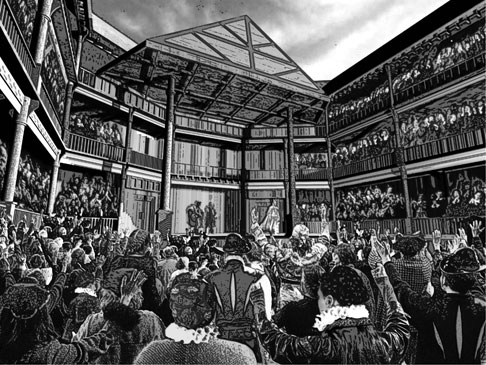The Authors
 Bronte,
Austen and Shakespeare were noted to be private and independent; an accusation
established by Peter Roy, historian who studies historical period authors.
Little did he know that Bronte, Austen and Shakespeare were in fact; not all
that shy. They allowed you to read their darkest secrets and deepest passions.
Many readers do not understand their works to be to that degree, but it was
because people fail to read the underlying message. So many writers write, to write, and never tap into their true
emotional self and the reason why they want to write. It is hard to open access
to that personal area, but that is what is separating them from the great
writers. People read works from these authors so they never received the
underlying messages that they would have if they were reading a novel or play
from Bronte, Austen or Shakespeare.
Bronte,
Austen and Shakespeare were noted to be private and independent; an accusation
established by Peter Roy, historian who studies historical period authors.
Little did he know that Bronte, Austen and Shakespeare were in fact; not all
that shy. They allowed you to read their darkest secrets and deepest passions.
Many readers do not understand their works to be to that degree, but it was
because people fail to read the underlying message. So many writers write, to write, and never tap into their true
emotional self and the reason why they want to write. It is hard to open access
to that personal area, but that is what is separating them from the great
writers. People read works from these authors so they never received the
underlying messages that they would have if they were reading a novel or play
from Bronte, Austen or Shakespeare.
Do you want to read some underlying messages? Who was Charlotte Bronte writing about in Jane Eyre? Was Shakespeare Romeo? Why did Jane Austen, the queen of romance, never marry?
Charlotte Bronte

Charlotte Brontë was born in Thornton, Yorkshire in 1816. She was the third of six children, to Patrick Brontë , an Irish Anglican clergyman, and his wife, Maria Branwell. Maria Branwell Brontë died of cancer on 15 September 1821, leaving five daughters and a son to the care of her sister Elizabeth Branwell. In 1824, Charlotte was sent with three of her sisters; Emily, Maria and Elizabeth, to the Clergy Daughters' School at Cowan Bridge in Lancashire. Its poor conditions permanently affected Charlotte’s health and physical development and hastened the deaths of her two elder sisters, Maria and Elizabeth , who died of tuberculosis in 1825. Soon after their father removed them from the school on 1 June.
Charlotte and the other surviving children, Branwell, Emily and Anne, began chronicling the lives and struggles of the inhabitants of their imaginary kingdoms. Charlotte and Branwell wrote Byronic stories about their country “Angria” and Emily and Anne wrote articles and poems about theirs “Gondal.” The sagas were elaborate and convoluted (and still exist in part manuscripts) and provided them with an obsessive interest in childhood and early adolescence, which prepared them for their literary vocations in adulthood. In Charlotte’s journal, which was discovered in her father’s home after her death, she noted that “One’s writing is one’s escape; one’s dream.” This particular statement began to unfold the mystery as to who Jane Eyre was from Charlotte’s novel Jane Eyre. There have been great debates as to who Charlotte was writing about in Jane Eyre. Most people say that she was just a character of Charlotte’s Imagination however, some disagree. Christine McCallum, a dedicated Bronte fan had researched the novel Jane Eyre for years. Take a look at these findings:
| Charlotte's Life | Jane Eyre's Life |
|
- Attended
Clergy Daughters' School - School had poor conditions which permanently affected her health and physical development and hastened the deaths of her two elder sisters. - Fell in love with a married man (Mr. Rochester). -Enjoyed the Arts (writing) |
- Attended
Lowood' School - School had poor conditions which permanently affected her health and physical development and hastened the deaths of her best friend. - Fell in love with a married man (Mr. Rochester). -Enjoyed the Arts (drawing) |
There is one significant difference between Charlotte and Jane. Charlotte married a man named Arthur Bell Nicholls whome she married out of convenience. She never loved this man. Jane, one the other hand, married Mr. Rochester, the love of her life and lived happily ever after.
Charlotte wrote her fairytale ending for Jane.

Jane Austen

Jane Austen was an English novelist whose books, set among the English middle
and upper classes, are notable for their wit, social observation and insights
into the lives of early 19th century women.
Jane Austen was born on
December
16,
1775 in the village of Steventon in Hampshire. She was one of eight children of
a clergyman and grew up in a close-knit family. She
began to write as a teenager and grew into an international recognized writer.
Of course this happened after her death.
She was not extremely popular or wealthy during her short life, Jane Austen
captured the romance in her works that embodied the literary Romance Movement of
her time. Not only has she been credited with developing complex
characterization, she created novels that mirrored women’s position in society
of the time – where marriage was seen as a woman’s only salvation.
Remaining unwed and relying on her parents for most of her life, Jane had two
brothers who became clergymen and two others who joined the British Naval
Forces. Her sister Cassandra, named after their mother, was a helpful assistant
to her sister Jane’s novel ideas. The two would discuss the characters, their
roles, their lives, and in turn make them seem as ‘real’ to them as they do to
readers of her novels. Austen’s only educational background came from a relative
and a brief attendance at the Reading Ladies Boarding School.
Although Austen led a calm and comfortable life, her dislike for the Bath area
was reflected in the characters of her novels in which the protagonist lives in
Bath and cannot stand her situation. When her father died, Austen, her sister
and mother all moved to Southampton and finally to Chawton, where they all lived
in a small cottage. Throughout her different living situations, Austen continued
to write her novels. And, even though they were published anonymously at that
time, some stated her works, and especially her character sketches were
brilliant, equivalent to that of any of Shakespeare’s multifarious creations.
Most
of Jane Austen’s novels, the most popular being
Sense and Sensibility,
Pride and Prejudice,
Mansfield Park, and
Emma, all
are love stories about the inner, complex emotions of women of the day. Her
novels also lend themselves to themes of tragic fate from overzealous planning
of one’s own destiny. Her novels also touch upon a society forcing women to
search for security as they received no inheritance according to early English
law. And, even though Austen passed away at the early age 41, her novels remain
an intricate part of any academic study program of English Literature. And, many
of her novels have become successful movies.
In 1816, Jane began to suffer from ill-health, probably due to
Addison's
disease.
She travelled to Winchester to receive treatment, and died there on
18 July 1817. Two more novels,
Persuasion
and
Northanger Abbey
were published posthumously and a final novel was left incomplete.
The question that lingers on everyone’s mind is why Jane Austen, the queen of Romance, never marry? It is noted that Jane Austen found the love of her life at the early age of 20. His name was Tom Lefroy. Their love is described as the love Jane created in her novels. Simply, pure, and true. Yet after several marriage proposals from Tom, Jane decided to remain alone and enclose herself with the love she created in her mind. Why? No one really knows though it is speculated that if she was to marry, to settle for love, that her romantic touch would slowly disappear and her novels would not scream with the passion and intensity that they were currently written with.
She settled for creating love
for others; denying herself the chance to love.
William Shakespeare

Information about the life of William Shakespeare is often open to doubt. Some
even doubt whether he wrote all plays ascribed to him. From the best available
sources it seems William Shakespeare was born in Stratford on about April 23rd
1564. His father William was a successful local businessman and his mother Mary
was the daughter of a landowner. Relatively prosperous, it is likely the family
paid for Williams education, although there is no evidence he attended
university.
In 1582 William, aged only 18, married an older woman named Anne Hathaway. Soon
after they had there first daughter, Susanna. They had another 2 children but
William’s only son Hamnet died aged only 11.
After his marriage information about the life of Shakespeare is sketchy but it
seems he spent most of his time in London writing and performing in his plays.
It seemed he didn’t mind being absent from his family - only returning home
during Lent when all theatres were closed. It is generally thought that during
the 1590s he wrote the majority of his sonnets. This was a time of prolific
writing and his plays developed a good deal of interest and controversy. Due to
some well timed investments he was able to secure a firm financial background
leaving time for writing and acting. The best of these investments was buying
some real estate near Stratford in 1605, this soon doubled in value.
Some academics known as the “oxfords” claim that Shakespeare never actually
wrote any plays they suggest names such as Edward de Vere. They contend
Shakespeare was actually just a successful businessman. Nevertheless there is
some evidence of Shakespeare in theatres as he received a variety of criticism
from people such as Ben Johnson and Robert Greene.
William Shakespeare wrote 154 Sonnets mostly in the 1590s. Fairly short poems
they deal with issues such as lost love. His sonnets have an enduring appeal
with his characteristic skill with language and words.
The plays of Shakespeare have been studied more than any other writing in the
English language and have been translated into numerous languages. He was rare
as a playwrite for excelling in tragedies, comedies and histories. He deftly
combined popular entertainment with a rare poetic capacity for expression which
is almost mantric in quality.
During his lifetime Shakespeare was not without controversy, but he also
received lavish praise for his plays which were very popular and commercially
successful.
Shakespeare died in 1664 it is not clear how he died although his vicar
suggested it was from heavy drinking. His tombstone is marked with the following
epitaph;
Good friend for Jesus sake forbeare
To digg the dust encloased heare
Blessed by y man y spares hes stones
And curst be he y moves my bones
It is true to say that each line of Shakespeare has been poured over by scholars
and students no idea or concept has been left unturned. Shakespeare has left a
profound and lasting impact on literature, cinema and theatre.
Questions…
Did William Shakespeare write all he is noted for? Perhaps. One will never know
but it is truly hard to vision anyone but Shakespeare. Were his plays about him?
Perhaps. He married at the young age of 18, and from what records and sources
that have been uncovered, he was rarely home and did not enjoy his married life.
He craved a love like Romeo and Juliet. He wanted excitement like Midsummer’s
Night Dream and in his darker moments, he wanted pain like Macbeth. Perhaps he
was like Charlotte Bronte and Jane Austen.
They lived their lives through the stories they read and the stories
they wrote.